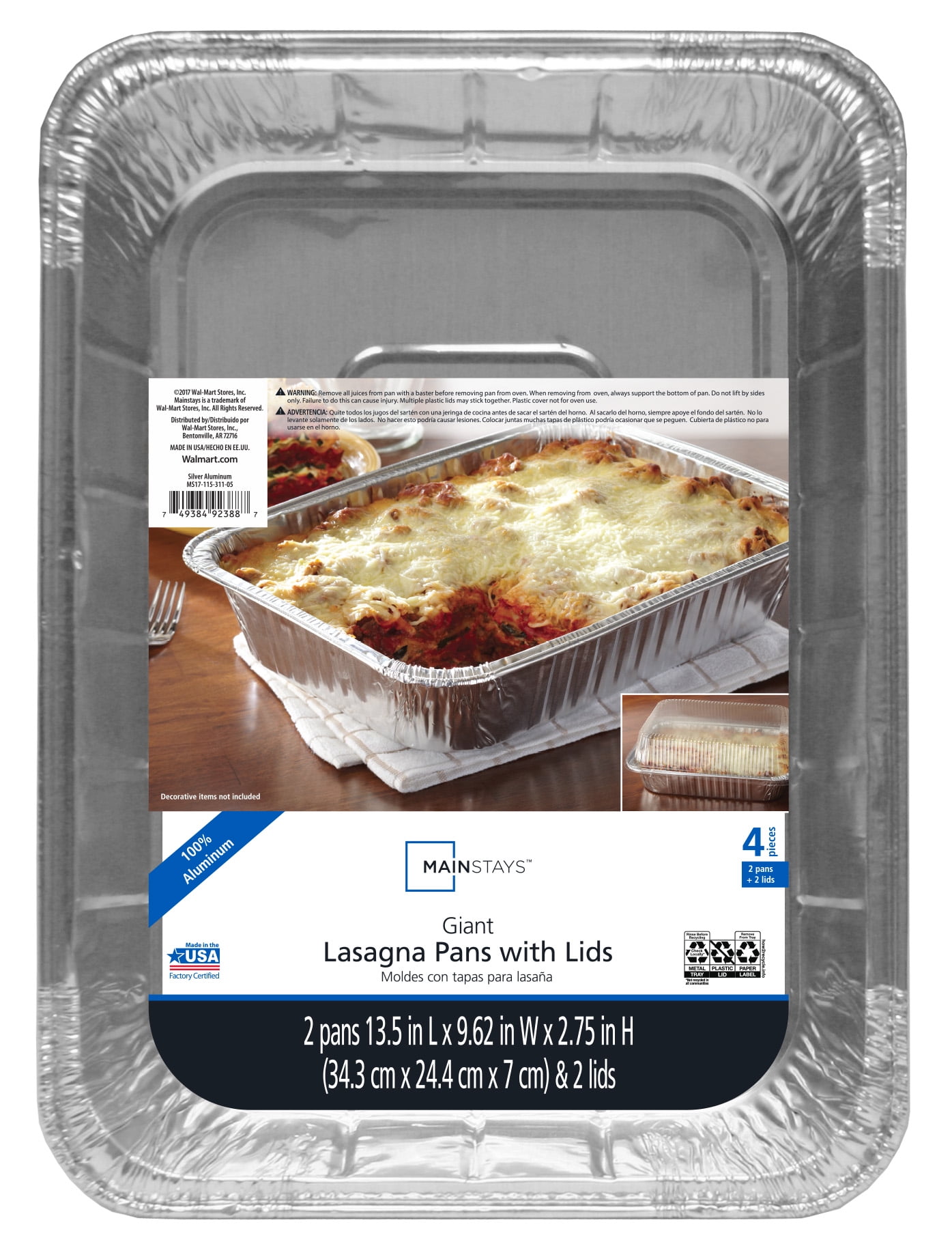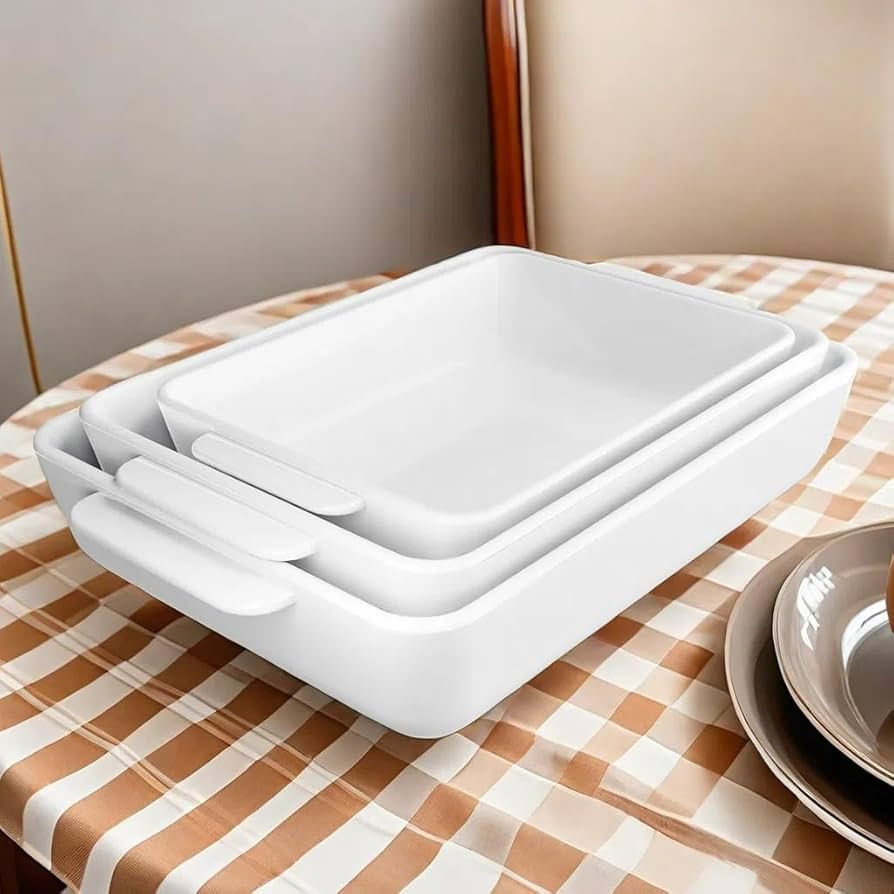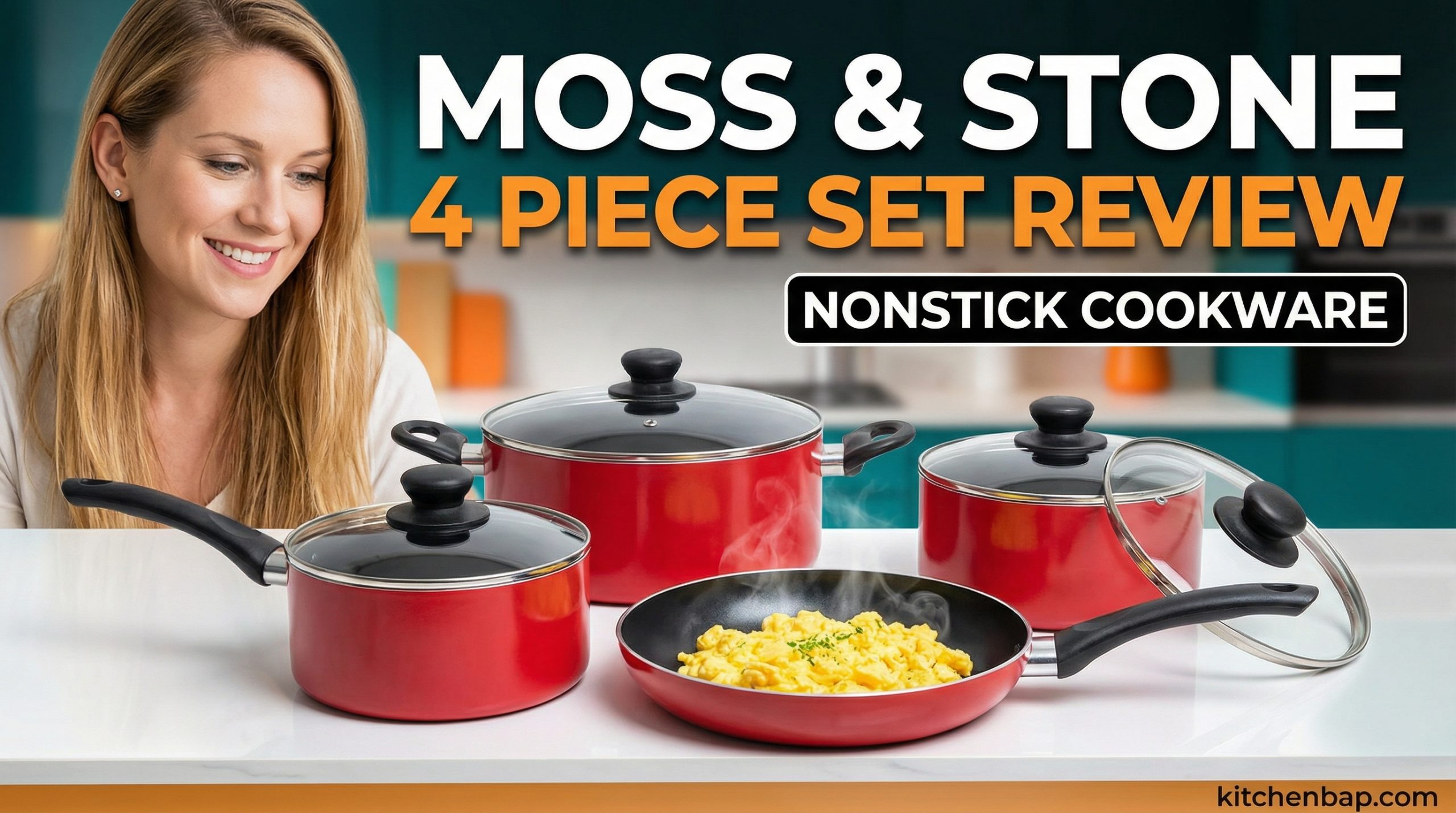Lasagna cookware refers to specialized baking dishes designed for making lasagna. These dishes typically feature high sides and are made from materials like ceramic, glass, or metal.
Lasagna is a beloved dish that combines layers of pasta, cheese, meat, and sauce. The right cookware enhances this culinary experience, ensuring even cooking and easy serving. Many people prefer ceramic or glass for their excellent heat retention and aesthetic appeal.
Metal pans, on the other hand, offer quick heating and durability. Choosing the right lasagna cookware can elevate your dish from ordinary to extraordinary. Investing in quality pans not only improves the cooking process but also adds a touch of style to your dining table. Explore various options to find the perfect fit for your kitchen needs.
Choosing The Right Lasagna Pan
Selecting the perfect lasagna pan can change your cooking game. The right pan ensures even cooking and easy serving. Consider the size and material of the pan for the best results.
Size Matters
The size of your lasagna pan is crucial. A larger pan can hold more layers and feed more people. Here are some common sizes:
| Pan Size | Servings |
|---|---|
| 9 x 13 inches | 6-8 servings |
| 10 x 15 inches | 10-12 servings |
| 12 x 18 inches | 12-16 servings |
Choose a size based on your needs. For small gatherings, a 9 x 13 inch pan works well. Larger pans suit bigger groups or meal prep.
Material Magic
The material of your lasagna pan affects cooking quality. Different materials heat up differently. Here are some popular options:
- Glass: Great for even heating. Easy to see layers.
- Metal: Durable and heats quickly. Ideal for browning.
- Ceramic: Stylish and retains heat well. Perfect for serving.
- Non-stick: Easy to clean. Prevents sticking.
Each material has its benefits. Consider how you want to cook and serve your lasagna. Choose wisely for the best results.

Credit: brandclub.com
Must-have Tools For Lasagna Lovers
Every lasagna lover needs the right tools. These tools make cooking and serving easier. They enhance the experience of making this delicious dish. Here are the essential tools you should have.
Spatulas And Ladles
Spatulas and ladles are vital for serving lasagna. They help you scoop out perfect portions. Here are some must-have types:
- Silicone Spatula: Flexible and non-stick friendly.
- Wooden Ladle: Great for serving and stirring sauces.
- Offset Spatula: Ideal for lifting lasagna slices smoothly.
Choose durable materials. They last longer and handle heat well. Having the right spatula and ladle makes serving easy.
Oven Gloves And Mitts
Safety is key in the kitchen. Oven gloves and mitts protect your hands. They allow you to handle hot dishes safely. Consider these options:
| Type | Material | Features |
|---|---|---|
| Silicone Gloves | Silicone | Heat resistant, flexible, easy to clean |
| Quilted Mitts | Cotton | Comfortable, stylish, good grip |
| Extra Long Gloves | Leather | Protection for arms, durable, heat resistant |
Choose gloves that fit well. Good grip is important for safety. Enjoy cooking without fear of burns.
Prepping Ingredients Like A Pro
Preparing ingredients for lasagna is essential for a delicious dish. Proper prep makes cooking easier and faster. Use the right tools for the best results. Let’s explore two key tools: sharp knives and mixing bowls.
Sharp Knives For Easy Chopping
Sharp knives are vital for quick and safe chopping. They make slicing vegetables effortless. Here are some knife types to consider:
- Chef’s Knife: A versatile option for all tasks.
- Paring Knife: Great for peeling and intricate work.
- Serrated Knife: Perfect for cutting soft ingredients like tomatoes.
Keep your knives sharp. Use a honing steel regularly. A sharp knife reduces the risk of accidents. Always cut on a stable surface.
Mixing Bowls For Perfect Blends
Mixing bowls help combine ingredients smoothly. Choose the right size for your needs. Here’s a quick guide on types:
| Type of Bowl | Best Use |
|---|---|
| Glass Bowls | Good for mixing and microwave use. |
| Plastic Bowls | Lightweight and easy to store. |
| Stainless Steel Bowls | Durable and great for heavy mixing. |
Consider using a set of bowls. Different sizes help with various tasks. Use a large bowl for mixing sauces and smaller ones for prep.
Organize your workspace. Place bowls and knives within reach. This setup saves time and keeps you focused.
Layering Secrets For The Ultimate Lasagna
Creating the perfect lasagna involves more than just cooking. It’s all about the layers. Each layer adds flavor and texture. Mastering these layering secrets will elevate your dish.
The Base Layer
The base layer sets the foundation for your lasagna. It should be hearty and flavorful. Start with a layer of sauce. Use marinara or a rich meat sauce.
Next, add a layer of noodles. Choose high-quality, uncooked lasagna noodles. They absorb moisture and become tender while baking.
- Sauce: Adds moisture and flavor.
- Noodles: Provides structure.
Ensure the base is evenly spread. This helps with cooking. Avoid gaps to prevent dry spots.
Balancing Flavors And Textures
Each layer should have a mix of flavors and textures. Start with a generous portion of sauce. Then, add a layer of cheese. Ricotta, mozzarella, and Parmesan work well.
Follow with a layer of vegetables or meat. Spinach, zucchini, or ground beef are great choices. Alternate these layers for a balanced taste.
- Layer of sauce
- Layer of noodles
- Layer of cheese
- Layer of meat or vegetables
Repeat this process. Each layer enhances the overall flavor. Remember to finish with a top layer of sauce and cheese. This creates a beautiful, bubbly crust.
| Layer | Type |
|---|---|
| Base | Sauce |
| First Layer | Noodles |
| Middle Layers | Cheese & Meat/Vegetables |
| Top Layer | Sauce & Cheese |
Balancing flavors and textures is key. It makes each bite exciting. Enjoy your delicious homemade lasagna!
Sauce Simmers And Cheese Choices
Creating the perfect lasagna starts with rich sauces and delightful cheeses. Choosing the right ingredients elevates your dish. Here, we explore homemade sauce techniques and the best cheeses for your lasagna.
Homemade Sauce Techniques
Homemade sauce adds depth to your lasagna. A good sauce makes a big difference. Here are some simple techniques:
- Use Fresh Ingredients: Always pick fresh tomatoes, herbs, and garlic.
- Simmer Slowly: Let your sauce simmer for at least an hour. This enhances the flavors.
- Balance Flavors: Add sugar for sweetness and salt for seasoning. Taste as you go.
- Experiment: Try different herbs like basil, oregano, or thyme.
These tips will help create a delicious sauce. Your lasagna will taste amazing!
Selecting The Best Cheeses
The right cheese is crucial for a tasty lasagna. Different cheeses offer unique flavors and textures. Here are popular cheese choices:
| Cheese | Flavor Profile | Best Uses |
|---|---|---|
| Ricotta | Creamy and mild | Layers and filling |
| Mozzarella | Stretchy and mild | Topping and layers |
| Parmesan | Nutty and salty | Sprinkled on top |
| Fontina | Rich and buttery | Layering |
Mix different cheeses for a richer flavor. Experiment with your favorite types. This will make your lasagna truly special.
Baking Tips And Tricks
Baking perfect lasagna requires attention to detail. Follow these tips for a delicious outcome. Mastering temperature, timing, and doneness testing can elevate your dish.
Temperature And Timing
Temperature and timing are crucial for baking lasagna. Here are key points:
- Preheat your oven to 375°F (190°C) before baking.
- Bake your lasagna for about 45 minutes.
- Cover with foil for the first 30 minutes to prevent drying.
- Remove foil for the last 15 minutes to brown the top.
| Stage | Temperature | Time |
|---|---|---|
| Preheating | 375°F (190°C) | 10 minutes |
| Covered Baking | 375°F (190°C) | 30 minutes |
| Uncovered Baking | 375°F (190°C) | 15 minutes |
Testing For Doneness
Testing for doneness ensures your lasagna is fully cooked. Use these simple methods:
- Insert a knife in the center. It should slide in easily.
- Check the cheese. It should be bubbly and golden.
- Look for bubbling sauce around the edges.
- Let it rest for 15 minutes before serving.
This resting period helps set the layers. Enjoy your perfect lasagna!
Cleanup Made Easy
Cleaning up after a delicious lasagna shouldn’t feel like a chore. The right lasagna cookware can make all the difference. With modern designs and materials, cleanup becomes a breeze. Here’s how to simplify your post-meal routine.
Non-stick Surfaces
Non-stick surfaces are a game changer in lasagna cookware. These surfaces prevent food from sticking. This means less scrubbing for you. Enjoy your lasagna without worrying about the mess.
- Easy release of food.
- Minimal oil or butter needed.
- Fewer stains and residues.
Many brands offer non-stick options. They come in various shapes and sizes. This flexibility allows you to choose what fits your kitchen best.
Dishwasher Safe Options
Dishwasher safe cookware saves time and effort. Just place your lasagna dish in the dishwasher. No more hand scrubbing and rinsing.
| Cookware Type | Dishwasher Safe |
|---|---|
| Glass Lasagna Dish | Yes |
| Ceramic Lasagna Pan | Yes |
| Metal Lasagna Pan | No |
Choose dishwasher safe options for a quick cleanup. It allows you to enjoy more time with family and friends.
:max_bytes(150000):strip_icc()/best-lasagna-pans-tout-920ef0d8494942b78a5640efc524b2dc.jpg)
Credit: www.allrecipes.com
Serving Suggestions And Presentation
Serving lasagna is an art. The right presentation enhances its appeal. Use attractive cookware for a beautiful display. Here are some tips for plating and pairing your lasagna.
Plating Techniques
Presentation matters. Use these simple plating techniques:
- Slice Neatly: Use a sharp knife for clean cuts.
- Layering: Showcase layers for visual impact.
- Garnish: Add fresh herbs like basil or parsley.
- Color Contrast: Use colorful sides for balance.
- Use a Ring Mold: Create individual portions.
Serve on a warm plate. It keeps the lasagna hot longer.
Pairing With Sides
The right sides enhance the lasagna experience. Consider these options:
| Side Dish | Description |
|---|---|
| Garlic Bread | Crispy, buttery bread complements lasagna well. |
| Caesar Salad | Crisp lettuce and creamy dressing add freshness. |
| Roasted Vegetables | Seasoned veggies provide a healthy contrast. |
| Steamed Broccoli | Bright green color and health benefits. |
Choose sides that balance flavors and textures. A light drink pairs well too. Consider a glass of red wine or sparkling water.

Credit: www.amazon.com
Frequently Asked Questions
What Materials Are Best For Lasagna Cookware?
The best materials for lasagna cookware include ceramic, glass, and stainless steel. Ceramic offers even heat distribution, while glass allows for easy monitoring of cooking progress. Stainless steel is durable and resistant to warping. Choose a material that fits your cooking style and preferences.
Can I Use A Regular Baking Dish For Lasagna?
Yes, you can use a regular baking dish for lasagna. Ensure it is deep enough to hold layers of pasta, sauce, and cheese. However, specialized lasagna cookware often provides better heat distribution and easier serving. A regular dish may also require longer cooking times.
How Do I Choose The Right Lasagna Pan Size?
To choose the right lasagna pan size, consider your recipe and serving needs. Standard sizes range from 9×13 inches to larger options. A larger pan is ideal for feeding a crowd, while a smaller pan suits intimate meals. Always check your oven space before making a decision.
Is Non-stick Lasagna Cookware Worth It?
Yes, non-stick lasagna cookware is worth considering. It prevents sticking and makes cleanup easier. However, ensure it is of high quality and safe for high temperatures. Non-stick options can enhance your cooking experience, especially if you frequently make cheesy or saucy dishes.
Conclusion
Choosing the right lasagna cookware is essential for creating delicious, perfectly baked dishes. Consider factors like material, size, and ease of cleaning. With the right tools, you can elevate your cooking experience. Invest in quality lasagna cookware to enjoy mouthwatering meals and impress your family and friends at every gathering.





Leave a Reply